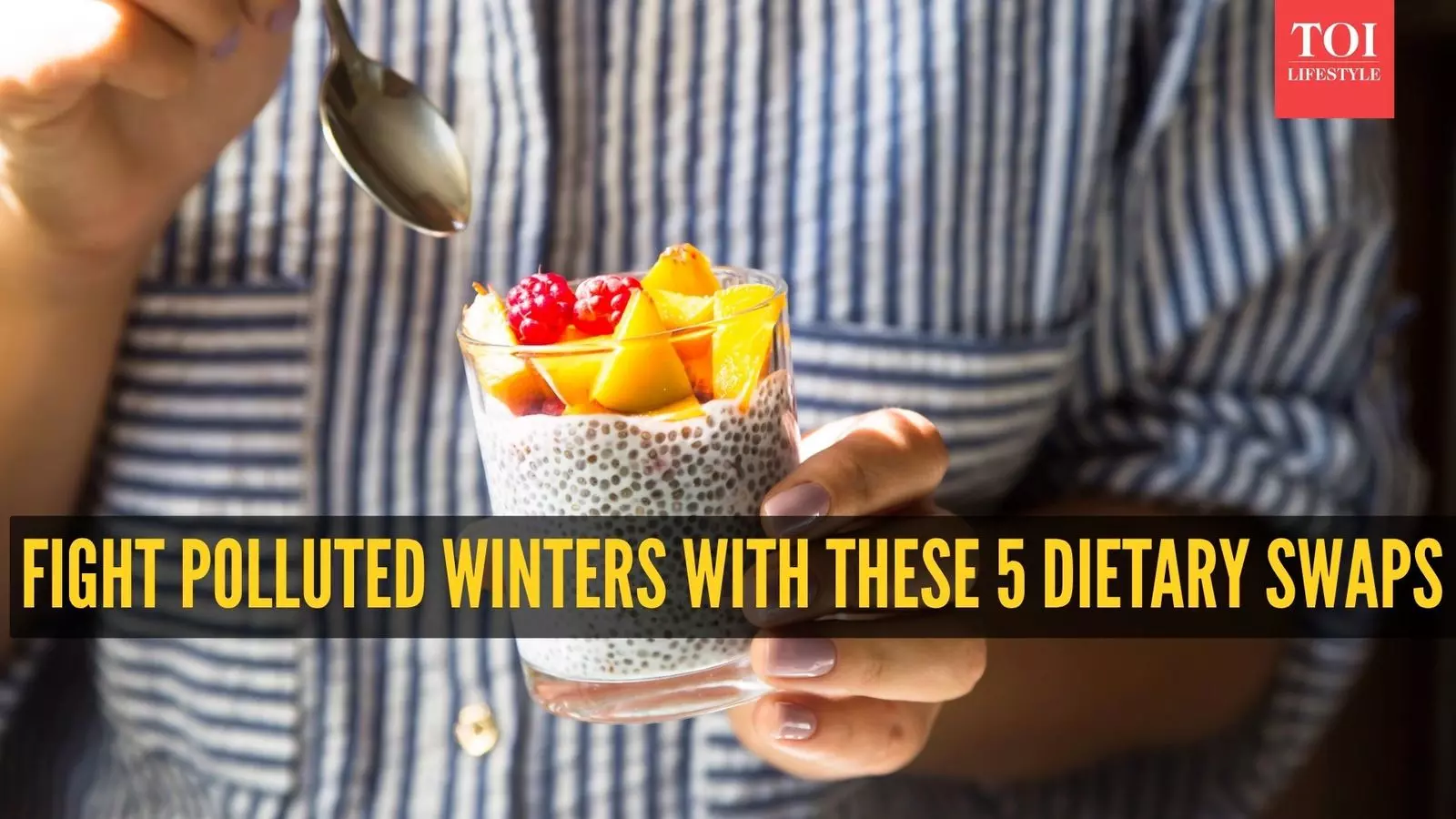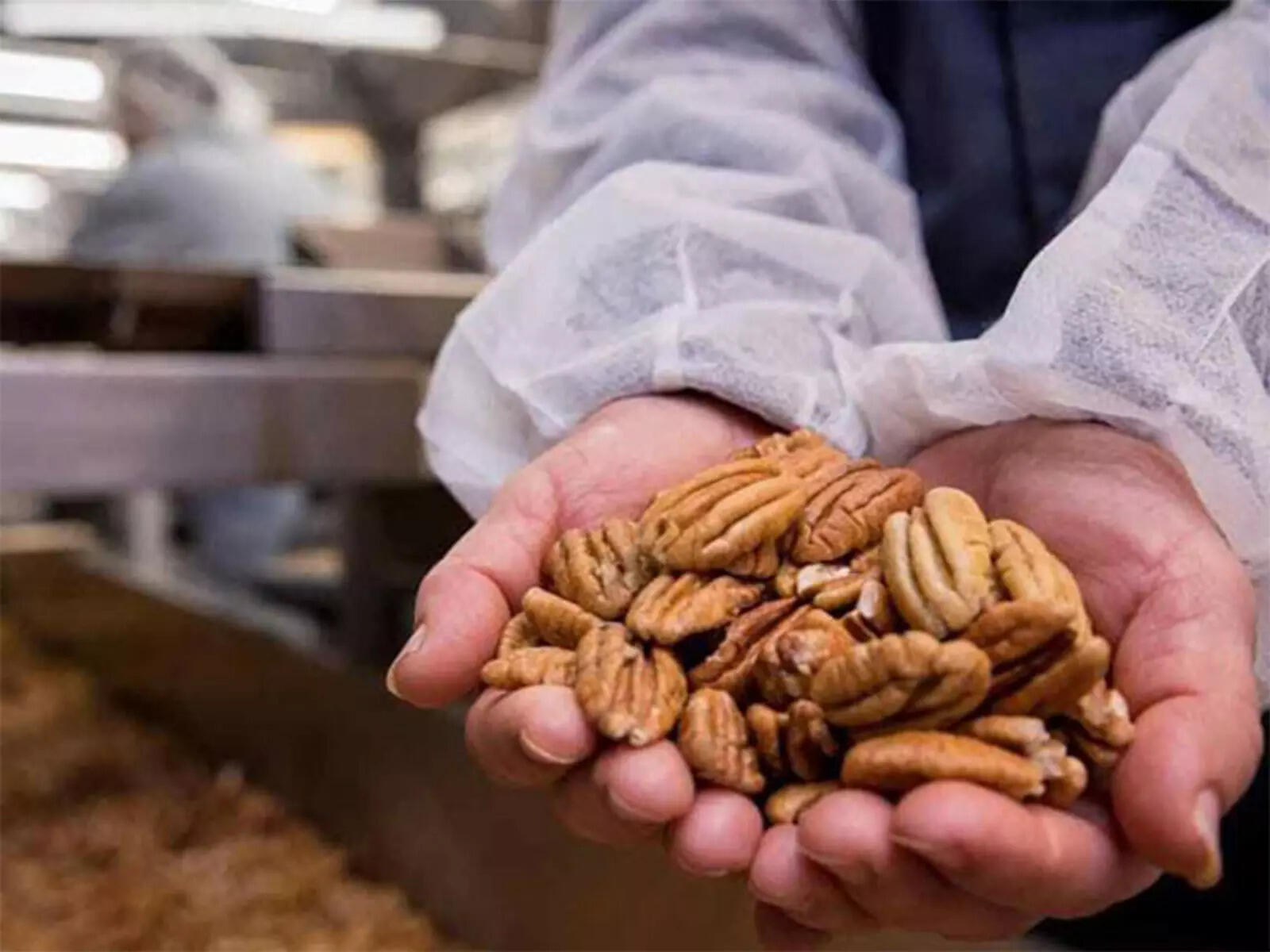 Boost Your Immunity This Winter Amid Smog: 5 Nutritional Swaps to Combat Air Pollution When winter settles in, the chill in the air often comes with a less-welcome guest — rising air pollution. As smog levels peak, so do allergies, coughs, sinus infections and a constant sense of fatigue. While air purifiers and indoor plants play their part, your real defence may begin much closer to home — right on your plate.In an interview with the Times of India, Functional Nutritionist Mugdha Pradhan, CEO and Founder of iThrive, a Pune-based wellness platform, shared, “During winter, pollution peaks and so do coughs, allergies, breathing difficulty and general fatigue but along with indoor plants and wearable air purifiers, what you eat every single day can make a huge difference to how well your body handles this polluted weather.”
Boost Your Immunity This Winter Amid Smog: 5 Nutritional Swaps to Combat Air Pollution When winter settles in, the chill in the air often comes with a less-welcome guest — rising air pollution. As smog levels peak, so do allergies, coughs, sinus infections and a constant sense of fatigue. While air purifiers and indoor plants play their part, your real defence may begin much closer to home — right on your plate.In an interview with the Times of India, Functional Nutritionist Mugdha Pradhan, CEO and Founder of iThrive, a Pune-based wellness platform, shared, “During winter, pollution peaks and so do coughs, allergies, breathing difficulty and general fatigue but along with indoor plants and wearable air purifiers, what you eat every single day can make a huge difference to how well your body handles this polluted weather.”
Delhi Smog Worsens Two Days After Diwali, AQI Hits Very Poor Levels
A stark backdrop: Delhi’s smog hits “severe”In fact, the urgency of this message is underscored by real data. On November 11, 2025, the Delhi-NCR region recorded an Air Quality Index (AQI) reading of over 400, officially triggering Stage III of the Graded Response Action Plan (GRAP) for the first time this year. Construction is now halted, older vehicles banned and children advised to stay indoors. This is a stark reminder that our bodies need added nutritional support when the air turns hostile.
Toxic Smog Alert: Delhi’s Air Quality Turns ‘Severe’: Grap 3 Restrictions Now in Force!
Swap refined oils for traditional fatsRefined seed oils like sunflower and soybean are high in omega-6 fatty acids, which promote inflammation, something that your body does not need when already battling pollutants. Health experts suggest replacing them with cold-pressed coconut oil or ghee, which are more stable at high temperatures and contain antioxidants that support lung and liver health.A 2020 study published in Frontiers in Nutrition found that diets higher in omega-3 and monounsaturated fats significantly reduced airway-inflammation markers in people exposed to particulate pollution.“Swap refined cooking oils with good fats like coconut oil or ghee,” said Mugdha Pradhan. “These are practical, sustainable and easy to integrate — not fancy diets, just everyday choices that reduce the body’s inflammation burden.”Replace fried snacks with nuts, seeds and seasonal producePollution increases oxidative stress, an imbalance that damages cells and weakens immunity. To counter that, reach for snacks rich in vitamin E, selenium and omega-3 fatty acids, like walnuts, macadamia nuts and flaxseeds.Aman Puri, Founder of Steadfast Nutrition, explained, “Replacing fried foods with nuts and seeds can benefit the lungs, as they’re rich in vitamin E and omega-3s, which reduce inflammation. Choosing fresh fruits and vegetables over packaged juices can also strengthen immunity.”
American Pecans: Nature’s Shield Against Pollution and Immunity Booster
A 2021 Environmental Health Perspectives study showed that participants with higher antioxidant intake (from nuts, leafy greens and citrus fruits) had significantly better lung function, even in high-smog urban areas.Ditch caffeinated and sugary drinks for herbal teasWhen air quality drops, hydration is critical. Caffeine dehydrates and taxes the liver, while sugar fuels inflammation. Instead, opt for herbal teas made with tulsi, turmeric, ginger or cinnamon, which are all known for their anti-inflammatory and immune-boosting properties.“Swapping caffeinated drinks with herbal teas made of ginger, turmeric, tulsi or cinnamon helps break down mucus and soothe a dry, sore throat,” said Aman Puri.Backing this, a 2022 study in the Journal of Ethnopharmacology found that tulsi and turmeric extracts improved respiratory comfort and lowered airway inflammation in individuals living in polluted environments.Choose soups and broths over deep-fried winter comfort foodsFried street treats might be enticing on chilly evenings but they can worsen inflammation and slow detoxification. Instead, go for homemade bone broths and vegetable soups, which are lighter, hydrating and rich in collagen and amino acids that support tissue repair.A 2022 study published in PMC found that certain cooking methods, including frying, are associated with higher inflammatory markers compared to boiling and raw food consumption. Fried foods can worsen inflammation, which aligns with their impact on slowing detoxification processes. Bone broths and vegetable soups, rich in collagen and amino acids, on the other hand, provide nutrients that support tissue repair and reduce inflammation.This supports choosing lighter, nutrient-dense homemade broths over fried street foods, especially in conditions of pollution and respiratory stress.Swap refined sugar for jaggery or datesRefined sugar not only spikes insulin but also suppresses immune function for hours after consumption. Jaggery, on the other hand, contains trace minerals like iron and magnesium and in Ayurvedic tradition, it is considered a gentle lung cleanser.
Boost Your Immunity: How Nutrition Can Protect You from Pollution (Image: Pexels)
“Swapping processed white sugar with jaggery can loosen mucus and soothe the throat,” said Aman Puri. “Even small swaps like these improve resilience during high-pollution days.”A 2023 Nutrients review found that natural sweeteners like jaggery and dates provide polyphenols that combat oxidative stress and may protect against pollution-induced cellular damage.Your body already has powerful detox tools like your lungs, skin and liver. What it needs is support, not strain. What you eat every day can either help or hinder how well your body handles toxic air.As Mugdha Pradhan put it, “These small swaps don’t feel like a sacrifice. They simply reduce inflammation, support energy and immunity, and help the body cope better in high-pollution winter months.”Clean air may not always be in your control but clean nutrition is. Start with one swap today, and breathe a little easier tomorrow.Note: The information provided in this article is for educational purposes only and is not intended as medical advice. Always consult with a qualified healthcare professional before starting any new medication or treatment and before changing your diet or supplement regimen.

